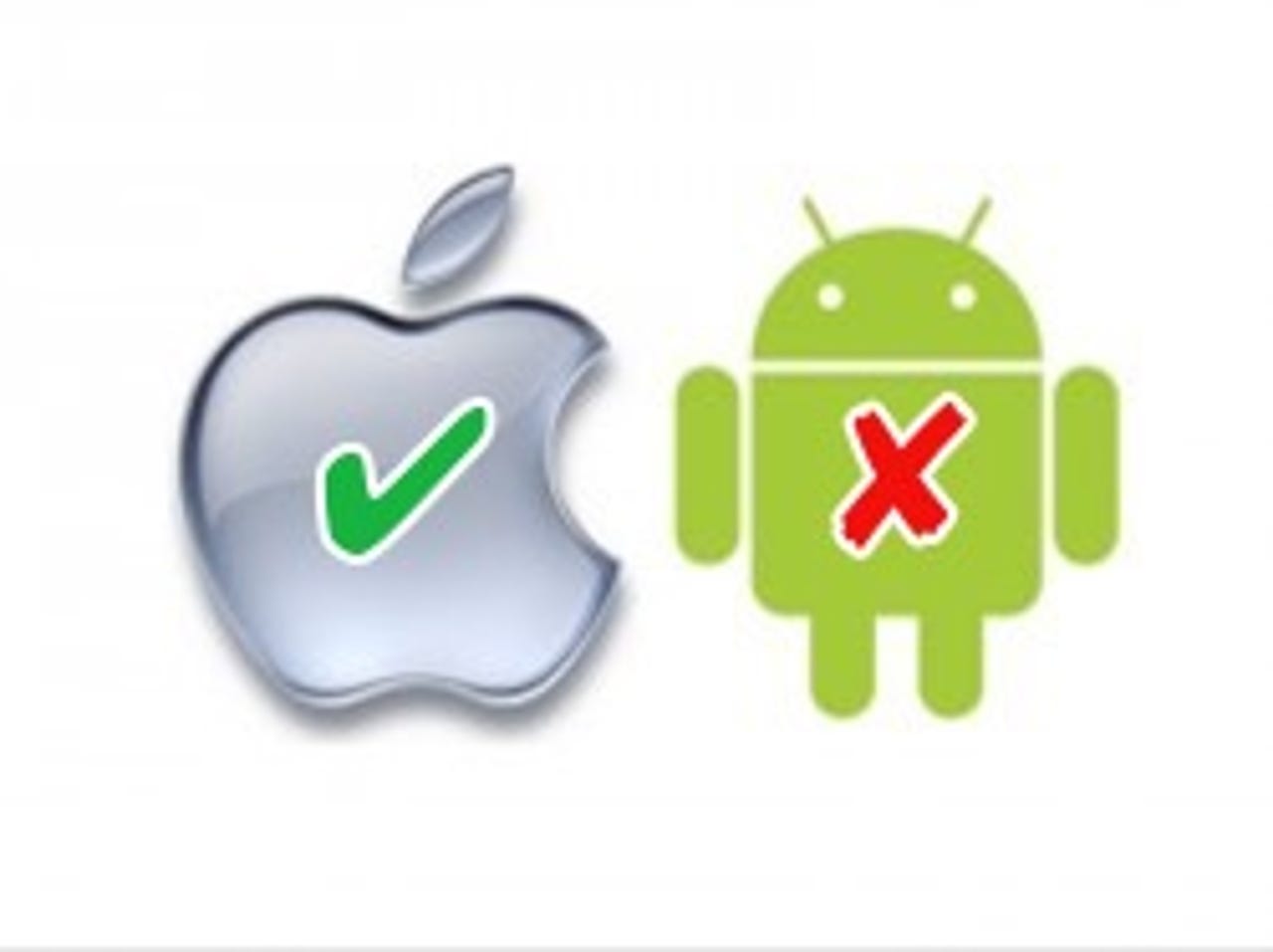2014: The year Apple got me to dump Android


Android is a great mobile platform, I've been using it since the very first phone appeared a few years ago. I've owned several Android phones and tablets, and I experienced firsthand the evolution of the OS. Google has pushed Android forward, and it's a solid platform for both smartphones and tablets.
If that's the case, then why drop it? For me the answer is simple. The evolution of iOS has been just as significant and it fits my wants and needs better than Android now.
I have long had both an Android tablet and smartphone in the gear bag, each used for different things. What I've done on each device has been a function of the screen size, the Android version, and the apps available. On Android the distinction between smartphone and tablet use has always been clear. Some apps I have long used only worked well on either the phone or the tablet, but not both.
That's always gotten in the way in my daily routine, and iOS has pointed out how big a factor it is when the phone and tablet function the same. The iPhone 6 Plus and iPad Air I own work the same in the ways that matter, and I can use the same apps on both.
This is so significant it can't be overstated. It is wonderful to be able to pick up either the iPhone or the iPad and do everything I want to do. Unlike Android, I don't have to think about which app I need to use because the two devices work the same.Even app interfaces on iOS work the same on the iPhone and the iPad. That lets me pick up either device and just do things.
On Android I often had to stop and think about which device I was using and thus which app to use for a given task. Then I had to figure out the app interface for either the Android phone or tablet. The two devices were never running the same version of the OS, and often the OEM had customized the operation in a different way on the phone and tablet. Far too often this caused the UI to be different, even on the same app.
I never realized how much that impacted the flow until iOS 8 arrived and demonstrated it didn't need to be that way. The OS operation is the same on both the iPhone and iPad, and apps work the same. Even more significantly, virtually all the apps I use regularly are optimized for both the phone and tablet.
Some will decry the locked down nature of iOS, but that's exactly why things work the same across devices. From this user's perspective, this makes it worth it. My user experience is better for it and that's the most important to me.
The two devices coordinate to let me do what I need, at the OS level, and without me doing anything to make it happen. I can move at will from phone to tablet and pick up where I left off. The actual device I use doesn't matter, doing the task at hand is the thing. That they coordinate with my Mac is icing on the cake. This interoperability is huge in practice.
Android has evolved into a very nice mobile platform and many will find it to be a better fit. That's the beauty of having choice in the mobile space. Everyone should use what they like and what works best.
For me, that's iOS. This year Apple's releases in both hardware and the OS made that obvious to me. While I didn't set out to do so, I have totally dropped Android from my tool kit. Not because it's inferior in any way, simply because it doesn't work like I do.I still have two Kindle Fire HDX tablets, and while Fire OS is based on Android it's totally different. The tablets from Amazon don't operate the same as Android devices, and I don't consider them to be Android tablets. The fact is, as time passes I find I don't use them much anyway.
I didn't set out this year to drop Android and switch totally to Apple's solution. This happened organically, and that's why it is the right move for me. It has nothing to do with if the iPhone 6 Plus is better than every Android phone, and the same for the iPad.
You can make a feature-by-feature comparison of either the iPhone or the iPad and find Android devices that stack up favorably in one area or another. That's not important to me, the only thing that matters to me is the total package.
The iOS solution works the way I do, and makes my mobile experience more productive. Over the years I have been unwavering in my intent to use what fits me best, and this is no different.
I'll keep an eye on Android to see if it changes in the future to better suit my needs but I don't see that happening soon.
See related: